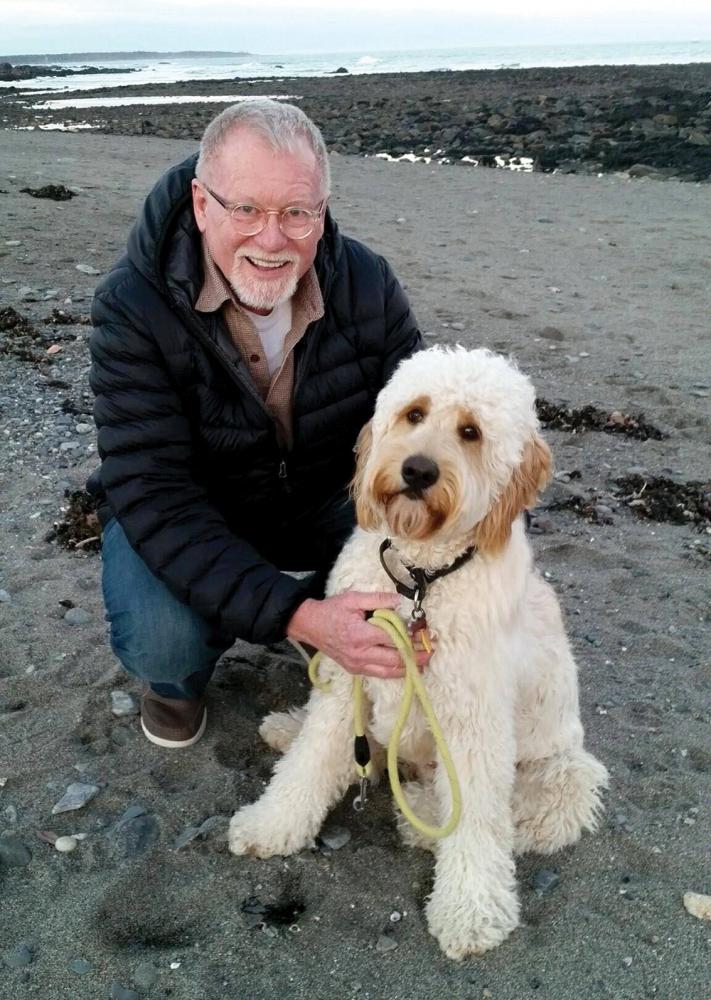 Retirement generates a myriad of emotions for many U.S. workers. It’s exciting, stressful, hopeful, overwhelming and, one could hopefully say, expected.
Retirement generates a myriad of emotions for many U.S. workers. It’s exciting, stressful, hopeful, overwhelming and, one could hopefully say, expected.
We know from AARP ads and various insurance eligibility that the age of retirement is 65. However, a recent Gallup survey suggests the average age of those retiring is rising. While the Gallup survey shows more workers stepping into retirement as early as age 61, the 2022 retirement pool is still older than it was in 1991, when it was reasonable to retire around 57.
But what actually happens when workers make the decision to close out this chapter of their career? For Paul Boynton, retirement was far from what some might have expected.
The bestselling author and former head of The Moore Center, a Manchester-based nonprofit dedicated to serving people with intellectual, developmental and personal challenges, Boynton stepped down as CEO in spring 2021.
Packing up his office, Boynton says, was bittersweet. On his last day, he perused a slew of binders with strategic planning intermingled with notes from many wishing him a successful retirement. The notes said things like “enjoy the golden years,” “don’t golf too much,” and “come see us again.”
Pausing as he shut his office door for the last time, he asked, “Now what?”
Changing the Cliche
That question reflects what many leaving their careers feel. Curiosity and anxiety.
Walking out of one’s workplace for the last time can create an air of impending finality that many retirees may not be ready to accept.
Boynton, however, says he was determined to challenge the traditional understanding of retirement. As he puts it, “It’s time to retire the word retire.”
“I believe there is an outdated concept of retirement when we simply stop working and have fun presumably playing golf or fishing or reading novels,” Boynton says. “A more realistic and timelier concept that I am more comfortable with is stepping down from a primary job and continuing to pursue new adventures that fuel your passion.”
“At the beginning, I told people that I had retired. One day, I realized that the traditional understanding of retirement wasn’t capturing my new routine at all. I now say, ‘I stepped down as CEO and am currently writing a new book, continuing to work in the nonprofit world, and developing a technology-driven peer support network. … I am busier than ever,” he says.
 Confidence in a New Phase
Confidence in a New Phase
Granted this transition comes with a multitude of unknowns. The Employee Benefit Research Institute surveys 3,000 individuals annually to learn about retirement outcomes. This Retirement Confidence Survey (RCS) is the longest-running survey of its kind. And, for the past 32 years, it measures worker and retiree confidence and expectations versus reality about retirement, particularly lifestyle and finances.
In a recent RCS survey, almost 1,200 retirees reported their new lifestyle included such activities as volunteering, traveling and spending time with family. In other words, the traditional understanding of retirement held up.
But Boynton says what’s different is how a retiree rechannels their passion. Retirees can continue to do what they loved about their jobs while not doing the things they never enjoyed.
Saying Yes to Act III
Retirement can go beyond those items listed on the RCS. As the author of “Begin With Yes: A Short Conversation That Will Change Your Life Forever,” Boynton has helped millions of his followers and readers say yes to life. To that end, retirement is the perfect time to do the things you’ve always wanted to do but never pursued. He suggests taking simple, actionable steps to pursuing something different.
Boynton uses the theater as a metaphor. In a traditional play there are three acts and without the last act, the play would be unfinished. That’s not to say Act III is only reflection and resolution. “I chose to welcome this phase with an unwavering sense of purpose. After years of being devoted to a career, I still have much to share and much to learn and now more time to share and learn new things,” he says.
For example, Boynton’s retirement includes writing a new book, “Remember: A Little Book of Courage, Comfort and Joy,” taking improv classes with his partner Michael, remaining connected to The Moore Center and recently delivering the keynote address at the University of NH Manchester 2022 graduation.
When he reflects on his last day at the office, he remembers a small detail that inspired him. As he’d packed, there’d been a near-dead plant that had lost most of its leaves. When he left the office, Boynton says, “I realized I forgot the African Violet inside. Unlocking the door, turning the handle and swinging the door open, I picked up the plant. Looking down, I saw a new blossom, small but rich in color. I smiled and felt recharged, knowing I would get to watch the new bud grow, bloom. There was more to look forward to.”
Pictured: Paul Boynton, former head of The Moore Center. (Courtesy photo)

 Current Issue - May 2024
Current Issue - May 2024